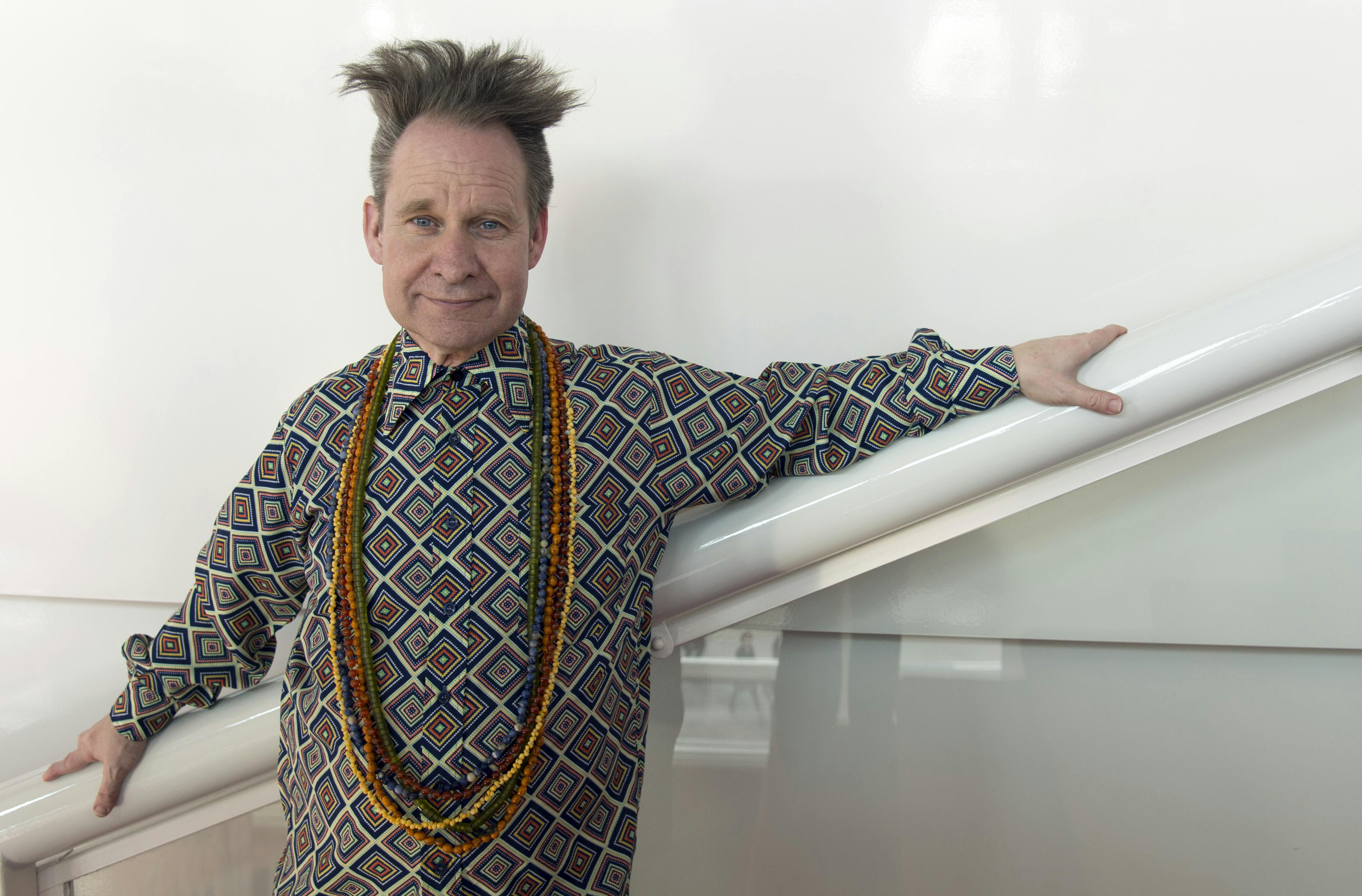Q&A: Unique event offers healing through meditation, film, conversation and food

This weekend, film and arts lovers will get a chance to hear first-hand from Peter Sellars, UCLA professor and acclaimed theater maker alongside advocates from the realms of social justice and wellness.
On Sat., Dec. 9 at 4 p.m., the Billy Wilder Theater at the Hammer Museum hosts “Reimagining the Olympiad: Body and Mind.” The UCLA Film & Television Archive, UCLA Anderson School of Management, and Alice Waters Institute for Edible Education at UC Davis present this program sharing meditation, conversation and the screening of Peter Sellars’ multidisciplinary performance film – “this body is so impermanent…” (2021).
Joining Sellars in conversation are Bita Amani, associate professor, Charles R. Drew University of Medicine and Science; Sheila Bates, Black Lives Matter Grassroots policy coordinator, organizer and doula; Alisa Dennis, clinical psychologist and mindfulness teacher; Peter Sellars, theater director and UCLA distinguished professor; Nalleli Cobo, climate activistWe were forever marked in human history by COVID-19, Sellars said.
“The role of the arts is to create a series of markers next to that marker, which can memorialize and commemorate this moment in time, and also offer a window of acknowledgement, understanding, and empathy,” he said. “Our project is offered in the hopes of developing, deepening, and extending the connective tissues to the practice of the arts”
What does "Reimagining the Olympiad" mean?
“This is a moment where we are, of economic, moral, and practical necessity, having to reimagine many of our most established institutions including education, healthcare, criminal justice and culture. The early Olympics had a profound sense of cultural regeneration, bodily and mental health, and issues that are affecting the success and wellbeing of the next generation. This project is an example of a globalized act of re-imagination in the face of the COVID pandemic that addresses multiple vectors of wellbeing and international goodwill and collaboration.”
How does your multidisciplinary performance film, “this body is so impermanent…” (2021) connect to food?
“In most cultures, food is understood as a moral and spiritual question that extends to the values that inform shared existence with the earth and natural environment as well as equity and sharing with our fellow humans. Slow Food has become a popular term and watchword in contrast to fast food whose values of overproduction, squandering of resources, and cheapening of life have become endemic in modern societies. Our film is centered on the attribute and experience of patience understanding slowness as essential to life and to restorative healing practices in the sense that we’re all very much what we eat. The Vimalakirti Sutra draws our attention to the complex ecosystems and personal choices that are required to sustain the body, and the ongoing cultivation of wellbeing.”
Can you tell us about this international collaboration made film and it’s relation to the global moment of converging social and environmental crises?
“The process of making this film began as an open-ended proposal for three artists on three continents to collaborate in real time on Zoom in the early months of the global COVID lockdown. From this ambitious and very modest aspiration, gradually the project accumulated further dimensionality with artistic, moral, and financial contributions from participants in multiple contexts. We live in an age of interpenetrating global realities which the COVID crisis and the ongoing life and death issues of climate change are foregrounding. In this period of building new walls, it is incumbent upon us to extend and deepen means of international communication, cooperation and sharing.”
What should the audience expect from this in-person program?
“The film is quite unique and is unlike any other film experience that most viewers are likely to have had. The film is spacious, deliberately paced, and artistically rich in its interplay of art forms: music, text, visual art, and dance are in dialogue with each other and with contemporary film technologies. Meanwhile, the Buddhist sutra which informs the project represents ancient wisdom from the 1st century CE and the result is a film in which each viewer finds their own unique paths, associations, emotional resonances, and quietude. The film will be preceded by a guided meditation and followed by a panel discussion with a group of pathbreaking and progressive healthcare and environmental professionals who will extend the contexts of the film addressing our physical bodies, our civic bodies, our planetary bodies and our bodies of light.”
By Marisa Soto
Posted Dec. 8, 2023

